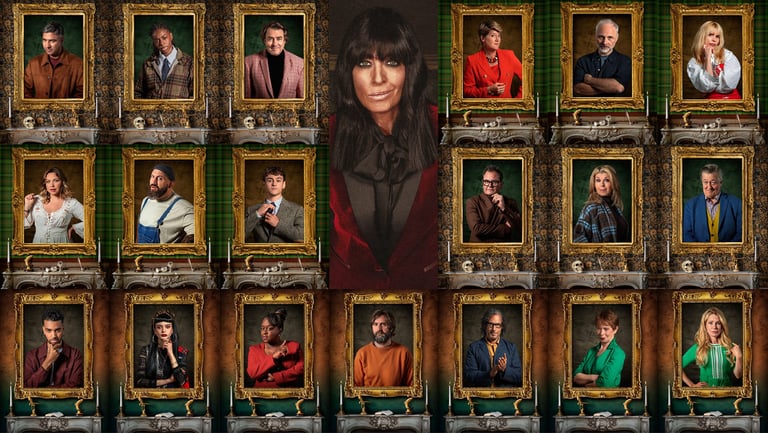Traitors in the Workplace: The Lie of Meritocracy
5 min read
Meritocracy endures as a comforting myth that justifies hierarchy by promising that hard work and fairness lead to success, yet in practice systems reward strategy, conformity, and perception over virtue or competence. Those who trust the rules are often betrayed, while those who perform and manipulate rise instead. In workplaces, likability and compliance are prized above skill and intelligence, which are frequently punished for disrupting social comfort. Survival depends less on ability than on appearing “safe” to others, revealing that success is not earned through merit but managed through optics, control, and the performance of normalcy.




For those born and raised in the UK, at some point in your life you will likely have heard words to the effect of: “If you work hard and do your job well, you will be rewarded”. British society feeds us this line from childhood – school, university, work. Meritocracy is the national bedtime story – soothing, repetitive, and designed to keep us compliant.
But the myth of meritocracy isn’t uniquely British – it’s global. Every system that depends on hierarchy needs a moral story to justify it. In Britain, that story takes the form of respectability and fairness: the quiet virtue of “playing by the rules”. In the United States, it becomes the gospel of self-made success. In Asia, it’s wrapped in duty; in Africa, in dignity and endurance. The language changes, but the message is the same – trust the system and your turn will come. The Celebrity Traitors shows us, in accelerated form, that it never does.
Like most societies, the castle sells a story of meritocracy – that diligence, decency, and teamwork will see you through. Contestants are told – implicitly and explicitly – that the game rewards cooperation, loyalty, honesty, and integrity. But what is actually rewarded is strategy, duplicity, and perception management.
The Faithfuls lose not because they’re wrong, but because they still believe the myth. The Traitors win because they mastered optics, politics, and self-preservation – all while appearing “team-spirited”. So, when a Faithful is suddenly blindsided, what you’re witnessing isn’t just betrayal – it’s the death of the meritocratic lie in real time. They’ve done everything “right”: played fair, worked hard, trusted the system. And still, they’re voted out or secretly assassinated by people who smiled to their faces.
The Betrayal of the Promise Sold
Meritocracy is one of the most enduring illusions of modern organisational life – most workplaces like to imagine themselves as fair. They speak the language of opportunity, equality, and “earning your place”. Job descriptions emphasise skill and competence. HR departments talk about values, transparency, and development. Leaders reassure people that those who work hard will rise, and those who fall behind simply need to improve or adapt.
But spend enough time inside any workplace and a different reality becomes clear: skill does not guarantee protection, intelligence does not guarantee credibility, and competence does not guarantee advancement. People are not rewarded for being the best at their job; they are rewarded for being the least threatening to the social and psychological comfort of others.
Meritocracy Requires a World That Doesn’t Exist
Meritocracy assumes four things:
Everyone can see skill clearly
Everyone is rewarded based on contribution
No one feels threatened by competence
The rules are stable and apply equally
None of these conditions existed on The Celebrity Traitors. None of them exist in the workplace. And none of them exist in global societies.
This gap between the meritocratic narrative and its lived reality is part of what makes The Celebrity Traitors such an unexpectedly accurate reflection of the uncomfortable truth that systems claiming to reward ability often punish it instead.
How Systems Punish Competence
As anyone watching the show can see, intelligence is misinterpreted as manipulation. Clear thinking is reframed as threat. Directness becomes a liability. Highly capable players quickly become targets. And individuals who authentically articulate their thoughts or display their feelings are treated with suspicion. All while those who present poise or perform noise advance.
It’s the same in the workplace. There, we see teams tolerate incompetence when it comes packaged in confidence or likability. People promoted for their relationships rather than their expertise. Harmful or ineffective behaviour overlooked when it comes from someone who reminds a manager of themselves, or who blends easily into the existing hierarchical wallpaper.
Meanwhile, those who think differently, speak plainly, or notice too much find themselves marginalised without clear explanation – just as they begin to excel. The person who communicates carefully is assumed to be hiding something (while the person who speaks with certainty is assumed to know more than they do). Any who question inconsistencies are labelled negative or combative. And the ones who simply don’t match the unspoken template of “normalcy” are treated as an anomaly.
This is how meritocracy collapses: not through overt unfairness, but through the social dynamics that quietly override fairness every day. What looks like “performance issues” from the outside is often something else entirely – a social judgement. Not a professional one.
As many who have been sidelined, silenced, or quietly pushed out know – yes, those who have stood on the precipice with the traces of shock, horror, and hurt still on their face and the sting of tears in their eyes, as they declare, “I am, and have always been, a Faithful”: Skill doesn’t save you. Good behaviour doesn’t protect you. Competence threatens people. The criteria for “success” or “failure” is not impartial – and it never was.
Yet the idea of meritocracy is relentlessly seductive because it preserves the deception that outcomes reflect objectivity rather than bias, and that every individual gets what they deserve. The celebrities think someone deserves to be banished right up until the banishment is revealed to have been completely unwarranted. Likewise, they are left reeling with questions why someone was murdered and desperately trying to find reasons and justifications they can be socially and psychologically comfortable with.
The Real Rules Exposed
The Celebrity Traitors lays bare the truth that most people spend their entire lives trying not to face: It’s not the best who survive. It’s those who are best at seeming “safe” to others. Survival depends on who feels threatened by you; how easy you are to control; how well you fit the group’s socio-emotional needs; whether you conform to the script others recognise; how “comfortable” your presence feels; how well you mask; whether your proficiency disrupts someone else’s performance; and whether your identity undermines your perceived credibility.
Understanding this pattern is important because it frees us from internalising blame for dynamics we did not create. It clarifies why certain people end up punished in systems that claim to value them. And it reveals why environments built on fear, ambiguity, or denial so often reward behaviours that appear confident rather than behaviours that are genuinely competent.
The lie of meritocracy is a structural feature of so many systems. Watching The Celebrity Traitors makes the injustice of this lie impossible to ignore. Because when clarity destabilises, intelligence disrupts, truth threatens, or difference unsettles – the system will always choose familiarity over fairness.
